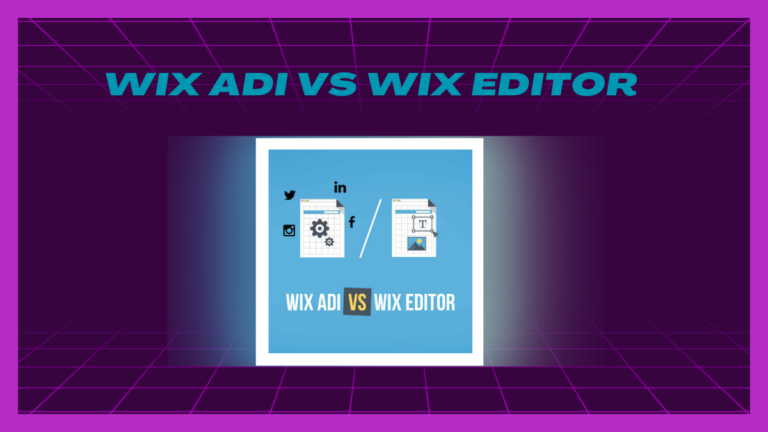Cost Of Website Domain
Welcome to our blog post on the ever-important topic of website domains! If you’re a budding entrepreneur, small business owner, or simply someone looking to establish their online presence, understanding the cost of website domains is essential.
In this comprehensive guide, we’ll break down everything you need to know about domain pricing and how it can impact your online venture. So whether you’re ready to snag that perfect web address or just curious about what goes into securing a domain name, get ready for an eye-opening journey into the world of website domains – where affordability meets digital success.
Table of Contents
What is a Domain Name?
A domain name is the address of a website. It is the unique identifier for a website on the internet. A domain name can be used to identify a business, an individual, or an organization. It can also be used to promote a product, service, or brand. Domain names are assigned by registrars, who are accredited by ICANN (the Internet Corporation for Assigned Names and Numbers).
How Does a Domain Work?
When you buy a domain, you are essentially renting it from a company like GoDaddy or Google. You pay an annual fee to keep the domain registered in your name, and in return, the registrar agrees to keep your contact information on file and point the domain name to the website you’ve built. If you don’t renew your registration, the domain will become available for anyone to purchase.
A domain works by matching the address people type into their browser with the DNS (domain name system) record stored on a name server. The DNS is like a phone book that matches human-readable names (like www.example.com) with IP addresses (like 192.0.2.1). When you buy a domain, the registrar will add your name and contact information to its records and point the domain name to its name servers.
Then, when someone types your domain into their browser, the browser will ask a root server for the IP address associated with your domain’s DNS records. The root server will then direct the browser to your registrar’s name servers, which will provide the IP address of your website so that it can be loaded in the browser.
Finding the Right Domain for You
When you’re ready to start a website, one of the first things you need to do is choose a domain name. This can be a tricky task, as there are many factors to consider. Do you want something short and catchy. Something that reflects your business or personal brand. Something that’s easy to remember.
There are a lot of domains out there, so it’s important to take the time to find the right one for you. Here are some tips:
- Think about what you want your website to be about. What is your purpose? What kind of content will you have? This will help you narrow down your options.
- Check out domain name generators. These can help you come up with ideas based on the keywords you enter.
- Make sure the domain name is available. Use a domain checker tool to see if it’s available as a .com, .net, .org, etc.
- Don’t forget about hyphens! If your first choice isn’t available, try adding a hyphen (-) between words.
- Be creative! Don’t be afraid to experiment until you find something that works for you.
- And finally, don’t overthink it! The perfect domain name doesn’t exist, so don’t get too caught up in finding it. Just choose something that you like and that represents your website well.
Types of Domains & Their Costs
There are many different types of domains, and their costs can vary widely. The most common type of domain is a “.com” domain, which can cost anywhere from $10 to $30 per year. There are also “.net” domains, “.org” domains, and country-specific domains like “.us” or “.uk”. These can all cost more or less than a “.com” domain depending on the registrar and the availability of the specific domain.
Another factor that affects domain cost is whether or not the domain is registered with privacy protection. This service hides your personal information from public view, and can add a few dollars to the annual cost of the domain. Some registrars offer discounts for bulk purchases, so if you’re looking to buy multiple domains it’s worth checking out pricing from a few different companies.

Different Ways to Register Your Domain
There are four different ways that you can register your domain name. You can do it through a domain registrar, web hosting company, DNS service provider, or an ICANN-accredited registrar.
Domain registrars are companies that provide the services for registering domains. They are accredited by ICANN and have to follow their rules and regulations. Some of the popular domain registrars include GoDaddy, Namecheap, and Hover.
Web hosting companies offer domain registration as one of their many services. When you register your domain with a web hosting company, they will become your Domain Name System (DNS) service provider as well. This means that they will be responsible for resolving any DNS queries for your domain name. Some of the popular web hosting companies that offer domain registration include Bluehost, HostGator, and InMotion Hosting.
DNS service providers are companies that provide the infrastructure for Domain Name System (DNS). They operate servers that store the DNS records for all the domains registered under them. When you register your domain with a DNS service provider, they will be responsible for resolving any DNS queries for your domain name. Some of the popular DNS service providers include Cloudflare, Dyn, and AWS Route 53.
ICANN-accredited registrars are companies that are accredited by ICANN to sell top-level domains (TLDs). They have to follow ICANN’s rules and regulations regarding TLDs.
Tips For Choosing the Right Domain Name
When it comes to choosing a domain name for your website, there are a few things you should keep in mind. The domain name is one of the first things people will see when they find your site, so you want to make sure it’s something that is easy to remember and catches their attention. Here are a few tips for choosing the right domain name:
- Keep it short and sweet: A long or complicated domain name can be difficult for people to remember and type into their browser. Stick to something that is short and easy to spell.
- Make it relevant to your business: Choose a domain name that is relevant to the products or services you offer. This will help people remember your site and find it more easily when they are searching for what you offer.
- Use keywords: Including keywords in your domain name can help improve your site’s search engine ranking. Try to include one or two relevant keywords in your domain name to help people find your site more easily.
- Avoid using hyphens: While hyphens can be helpful in some cases, they can also make a domain name more difficult to remember and type correctly. If possible, try to avoid using hyphens in your domain name.
- Be creative: Don’t be afraid to be creative with your domain name! A unique and catchy domain name can help you stand out from the crowd and attract attention from potential customers.
Pros and Cons of Owning a Domain Name
When it comes to owning a domain name, there are both pros and cons to consider. On the plus side, owning a domain name gives you a certain level of control and ownership over your online presence. You can also use your domain name to create email addresses, which can be a valuable asset for both personal and professional correspondence. Additionally, having a domain name makes it easier for people to find your website or blog online.
However, there are also some potential downsides to owning a domain name. For one, it can be expensive to buy and renew a domain name every year. Additionally, if you don’t keep up with renewing your domain name, someone else could eventually claim it as their own. This could lead to lost traffic and customers for your business or website. If you ever want to change your domain name, it can be difficult and costly to do so. There are both pros and cons to consider when deciding whether or not to purchase a domain name for your business or website.
Conclusion
In conclusion, the cost of a website domain can vary greatly depending on factors such as where you purchase it and which type of domain you choose. It is important to do your research to find the best price possible for the perfect domain name. Additionally, make sure that you are aware of any additional fees or restrictions associated with purchasing and owning a domain name before making your final decision. With this knowledge in hand, finding an affordable website domain should be much easier.
Recommended Readings:
https://codesparkler.com/how-much-does-it-cost-to-develop-a-website/






